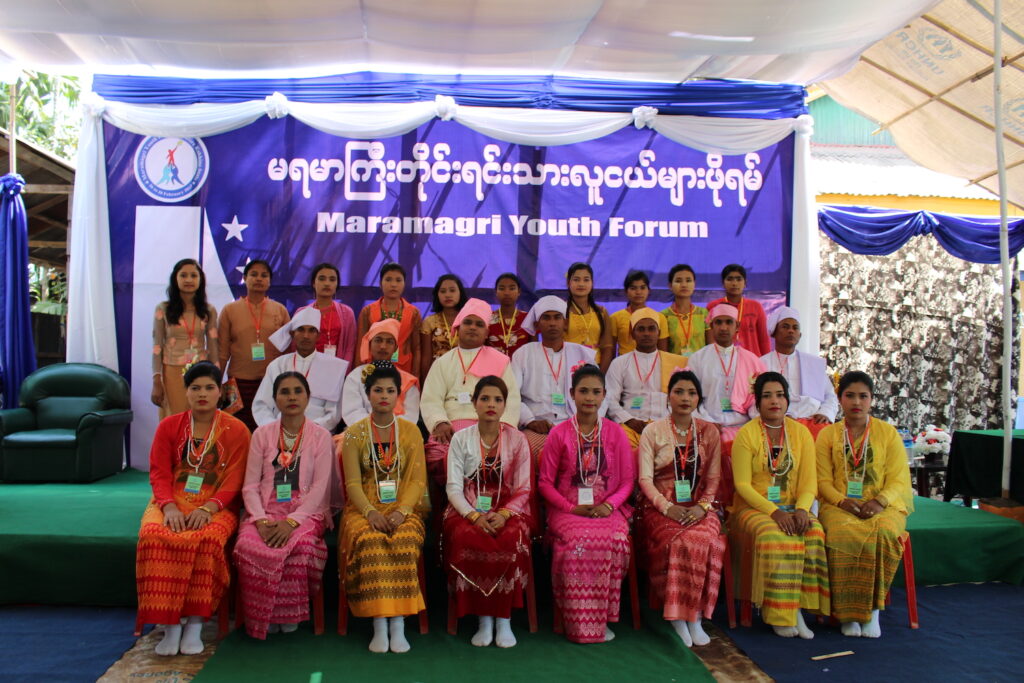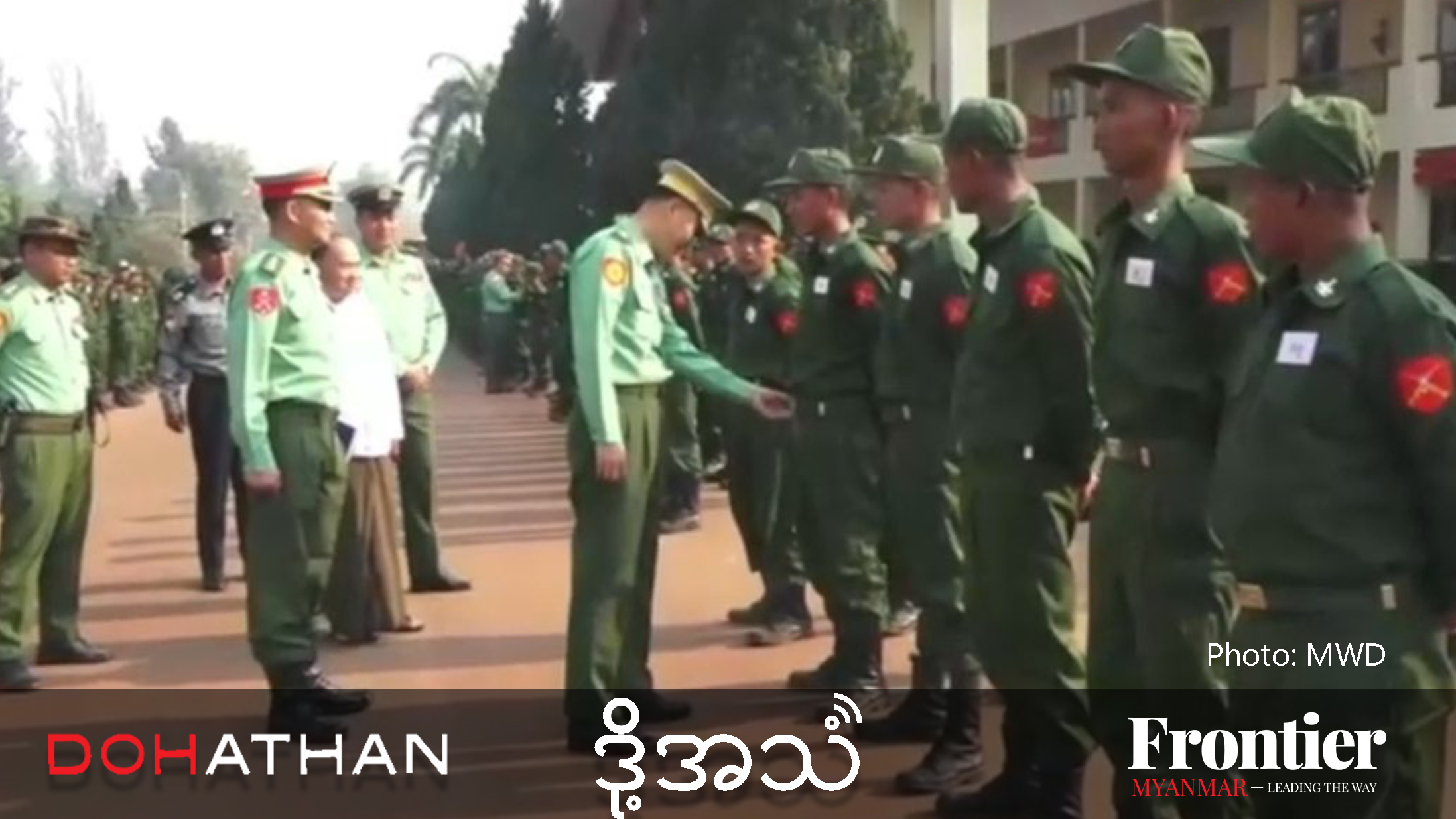OPINION
The injustices faced by smaller ethnic minority groups in Myanmar, like the Maramagri people in Rakhine State, are often overlooked by domestic and international human rights advocates, contributing to our continued suffering.
By CHRISTOPHER WIN | FRONTIER
Even after democratic reforms were launched in 2011, whenever I travelled from Rakhine State to Yangon, immigration officers would take me off the bus and force me to recite Buddhist prayers from memory. My national ID card identified me as a member of the predominantly Buddhist Maramagri ethnic minority group, but my South Asian features meant I had to prove my religion every time. Aside from the humiliating discrimination I suffered, the subtext was clear – if I had been Muslim, I wouldn’t be allowed to travel at all.
The Maramagri are a group of around 10,000 people in Rakhine who largely practice Buddhism but have similar features and speak a similar language to Rohingya Muslims. Although, unlike the Rohingya, we are included in the discriminatory list of 135 officially recognised ethnic groups, we have faced similar discrimination, including the arbitrary denial of citizenship and travel restrictions.
Even before being pulled off the bus, the entire process of planning a trip to Yangon was a constant reminder of my status as an “other” in Myanmar. I needed special documents from local authorities just to travel within Rakhine, which required bribery, and travelling out of the state meant satisfying the demands of even more corrupt and complicated bureaucracy. To make matters worse, we were typically only allowed to leave the state for 45 days, which was often inadequate for fulfilling essential tasks like seeking healthcare, education or employment.
In 1993, my father received a Citizenship Scrutiny Card (popularly called a “National Registration Card”), which provides proof of citizenship. Many Maramagri born in the 1990s and later, however, found it difficult to get this vital document, and it was not until the 2012 Moe Pwint project that most of them finally received it. I managed to get mine a little earlier, in late 2010 when I was 22 years old, but this required bribing immigration officials.
Still, authorities were clearly determined to confine minorities such as the Maramagri to Rakhine. Even after we got our CSCs, some of the same restrictions applied. In 2011, I was allowed to leave the state for more than 45 days to pursue my master’s degree in Yangon, but I still needed recommendation letters from my local police station and village administrator. We were only ever subjected to strict scrutiny when leaving Rakhine; when travelling back from Yangon, I was never questioned and rarely even asked to show my CSC.
It has never been easy to be a double minority in Myanmar – a minority within a minority. Institutional and societal discrimination has always been severe for minority groups but is often even more pronounced for people like the Maramagri, who belong to Rakhine society – which successive regimes have neglected in favour of Bamar-majority regions – and live alongside larger minority groups such as the Rohingya and Rakhine.
There’s no doubt the Rohingya and the Rakhine have suffered greatly under the Myanmar military. In 2017, more than 700,000 Rohingya were driven from their homes in a brutal crackdown and fled to Bangladesh. Rakhine civilians also faced persistent rights abuses during the 2018-2020 conflict between the military and Arakan Army, which fights for Rakhine autonomy.
But the plight of double minorities very rarely features in international news headlines. The Maramagri have historically been treated with suspicion by both the Rakhine and Rohingya, but there has been nobody to speak up for us on the global stage. During communal violence in 2012, Maramagri homes were allegedly burned down by Rakhine people in the historic town of Mrauk-U, and some were forced to flee during the military crackdown on the Rohingya in 2017.
From a very young age, I knew I was different. Going to school in a village of Rakhine’s Minbya Township ought to have been a nurturing environment, but there I was physically bullied and verbally harassed, with a classmate once telling me: “You kalar are not human.”
Kalar is a pejorative term typically used in Myanmar to refer to Muslims or people of South Asian descent.
As an eight-year-old boy, I got in an argument with another student from a larger minority group and the teacher immediately took his side, brutally slapping me in the face. I couldn’t help but feel that I was being treated worse because of my ethnicity. Despite my attempts to be stoic, I couldn’t hold back my tears.
This type of overt discrimination, however, is only the tip of a huge iceberg. It’s difficult for double minorities to access public services and other basic rights, but pervasive prejudice also inflicts a mental toll. We feel isolated and alienated in our communities and struggle to find acceptance, leading to emotional stress and trauma.
It’s also disappointing that rather than seeking solidarity, Myanmar’s marginalised ethnic groups sometimes turn their hostility on other, smaller groups, bullying us much the same way that they are bullied by the Bamar.
There is still a long way to go in terms of finding acceptance, protection and justice for double minorities, who are often forgotten in conversations about human rights. It is the responsibility of the international community to ensure that they receive the same fundamental rights as those from dominant ethnic groups, and work to promote positive cross-cultural dialogue and mutual understanding.
Most importantly, the global community ought to adopt firm and uncompromising measures against the Myanmar junta for its prolonged and calculated abuse of ethnic minorities. This includes refusing to engage with the regime, hitting it with economic sanctions and activating international justice mechanisms – for instance by issuing arrest warrants against junta leaders.
Christopher Win (aka Aung San Win) is an advocate of human rights and ethnic equality from the Maramagri ethnic group in Myanmar’s Rakhine State. He has been a liaison consultant for the United Nations Office of the High Commissioner for Human Rights and is now a graduate student at American University’s School of International Service in Washington, DC.







